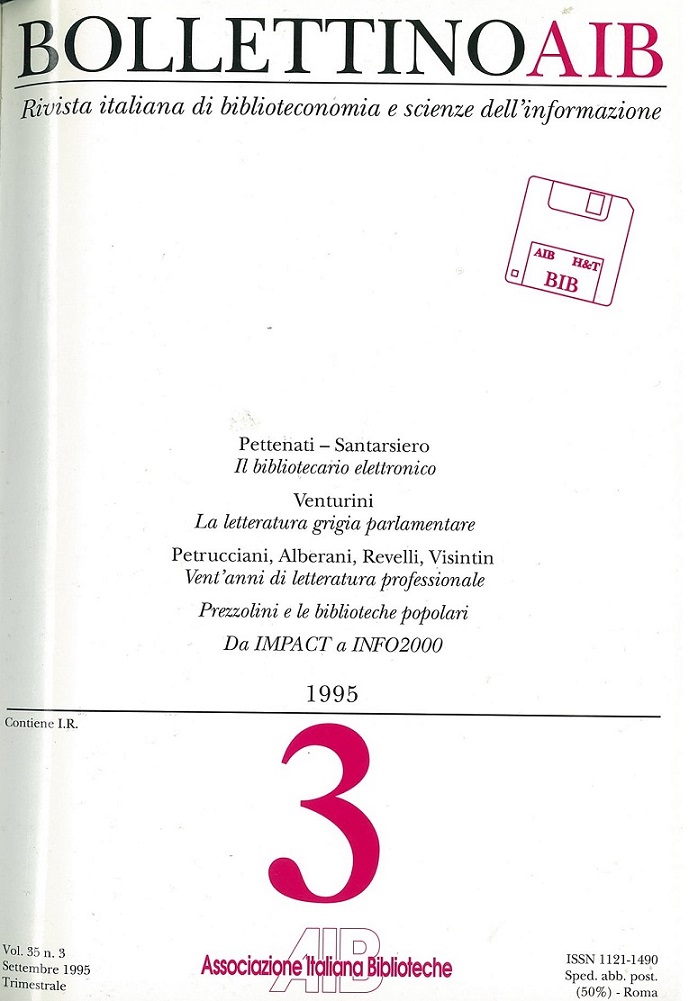Il bibliotecario elettronico: il valore delle competenze tecnologiche nei requisiti per l'accesso alla professione
Contenuto principale dell'articolo
Abstract
Focal point of the current study is the assessment of the skills required for professional librarians in a moment when the IT development is deeply changing the library management.
Libraries and their users have entered the electronic age. Many libraries provide direct access to a variety of services; with so many new opportunities libraries are managing new demands and expectations from their users and new skills are required of library staff. Users' expectations of libraries and library service have changed and the skills users must have to find information today are very different from those they needed just a few years ago. Librarians face the challenge of helping users, both the novice and the technologically proficient, with increasingly sophisticated electronic tools. There are also indications that the theme of technology for learning in library and information studies will become a high priority.
The wide application of IT in libraries (document selection from online databases, ordering and lending automation, copy cataloguing, opac and online information retrieval) gives rise to new professional skills and profiles, as it comes out from the examination of 168 vacancies appeared on PACS-L discussion list and on the bulletin of ADBS (Association des professionnels de l'information et de la documentation) from 10.8.1993 to 10.3.1994.
The knowledge is related to computer use (keyboard skills, skills in word processing, use of spreadsheets, identifying features of expert systems) and to information practice (online searching, database development and evalutation, design and evaluation of information retrieval systems, online cataloguing systems, knowledge representation skills, use and evaluation of educational resources, networking skills). It is this hierarchy of use, selection, management and design that seems to remain constant in the library and information profession. In summary, use of technology is required as an entry level competency, selection and management competencies are required within the core of graduate offerings, and design competencies exist as a set of elective offerings.
Based on the greater degreee of knowledge required (automation, software and hardware familiarity), the new trend is clearly the disappearance of traditional profiles (separated acquisitions, cataloguing and reference departments) in favour of profiles like the "reference librarian", "automation specialist" and "system librarian". The organizational change in libraries implies the access and exchange of electronic information rather than the storage of paper documents, and the IT as means to find, store, analize and forward information involves new professional attitudes such as closer cooperation with computer scientists, automation-oriented qualification and greater relevance to the final user training.
Dettagli dell'articolo

Questo lavoro è fornito con la licenza Creative Commons Attribuzione - Condividi allo stesso modo 4.0.
